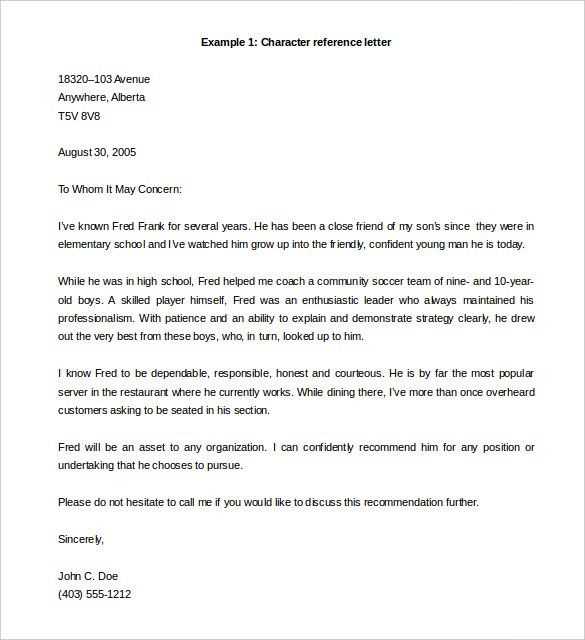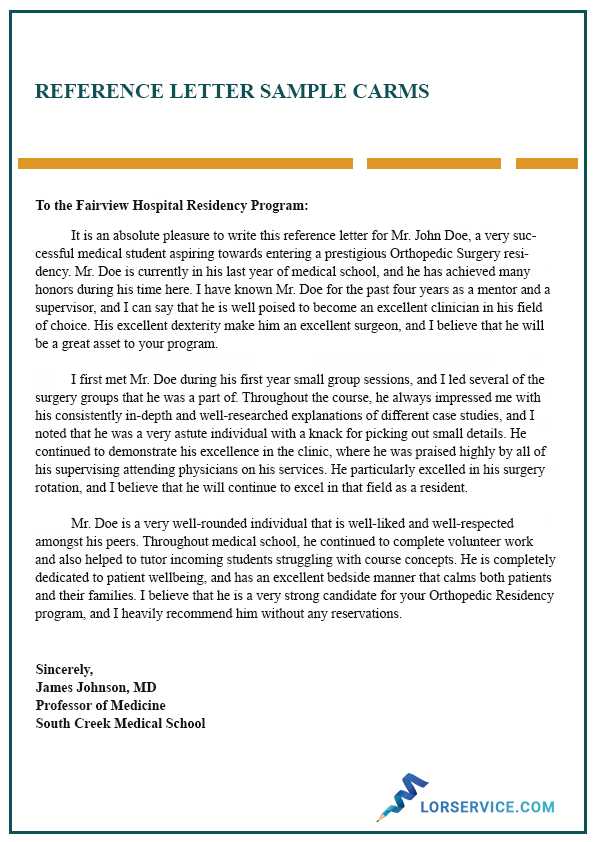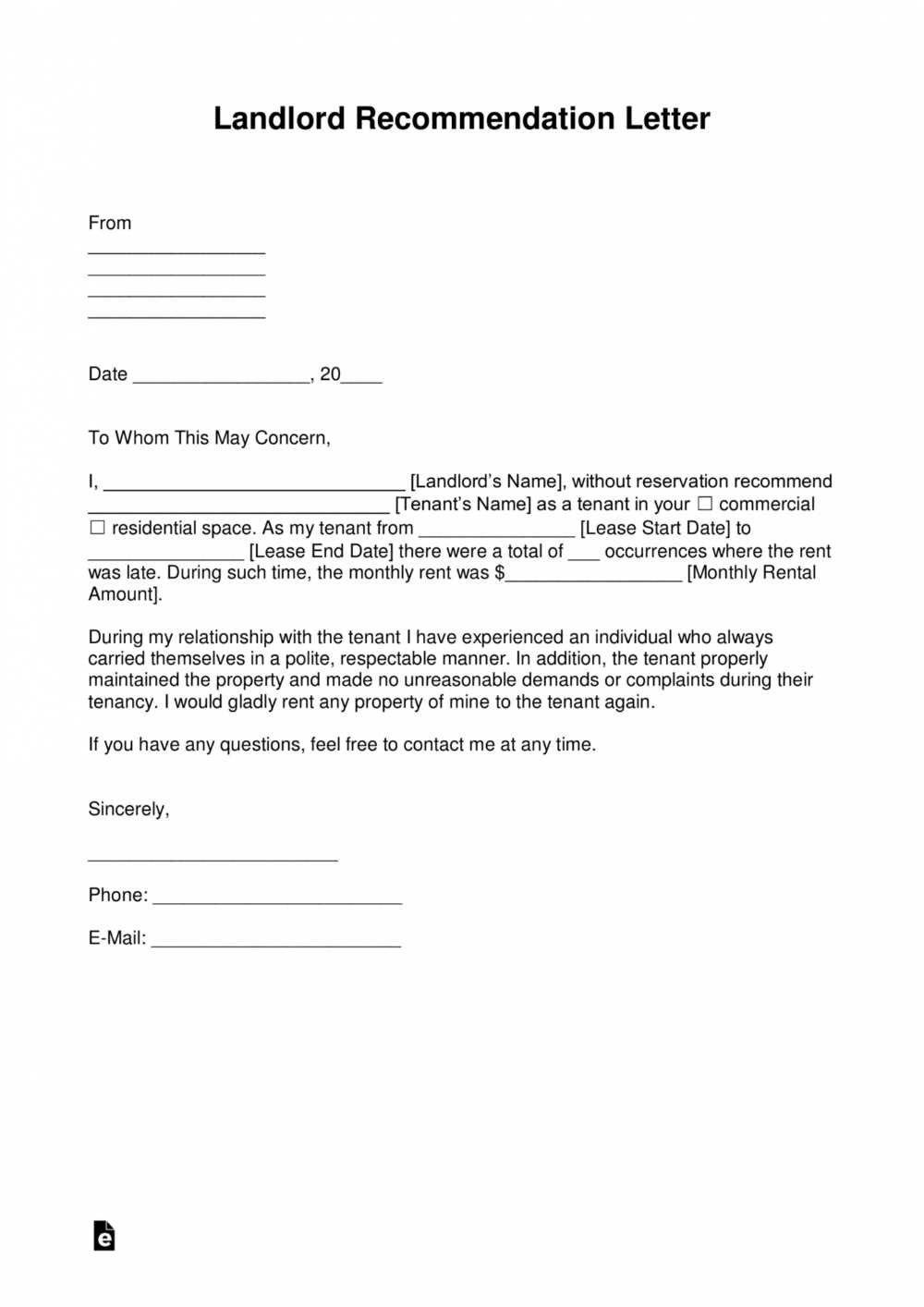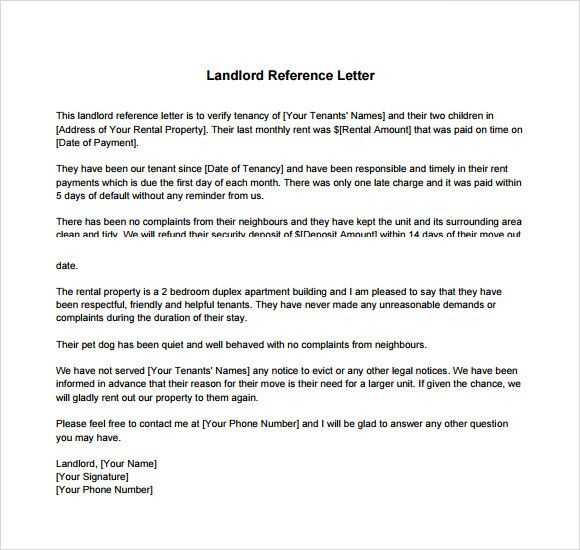Free Reference Letter Template for Any Occasion

When it comes to providing a written endorsement for someone, having a well-structured document is essential. Whether you’re supporting a colleague, employee, or a student, creating a persuasive and clear testimonial can make all the difference. A ready-to-use framework can significantly ease the process and ensure your endorsement is both professional and impactful.
In this guide, you’ll find an efficient structure to craft a strong recommendation, highlighting key skills and qualities. By using a pre-designed format, you can ensure consistency and focus on delivering a personalized and compelling message that stands out to the recipient.
Recommendation Format for Professionals
For those in need of a structured way to endorse a colleague or professional, having a solid format can streamline the process. This section focuses on providing a guideline for crafting a compelling and formal recommendation, ensuring it accurately reflects the individual’s strengths and qualifications.
By following a standardized structure, professionals can easily tailor their messages to suit the specific skills and achievements of the person they are endorsing. The result is a clear, concise, and persuasive endorsement that conveys credibility and professionalism to any potential employer or organization.
How to Write an Impactful Recommendation
Creating a strong endorsement requires a careful balance of detail and clarity. The goal is to provide an honest, well-rounded account of the individual’s abilities and qualities that would make them an asset in any professional setting. This section will guide you through the key steps to ensure your recommendation stands out.
Highlight Key Strengths

Start by focusing on the person’s most notable strengths. Whether it’s their work ethic, leadership abilities, or technical skills, be sure to provide concrete examples that demonstrate these qualities. Avoid vague praise; specific instances help the reader understand the person’s capabilities more clearly.
Maintain a Positive and Professional Tone
While it’s important to be truthful, your recommendation should maintain a professional and positive tone throughout. Even when addressing areas for improvement, frame them constructively, showing the individual’s ability to learn and grow. This approach ensures the endorsement remains balanced and supportive.
Personalizing Your Recommendation Format
While having a standard structure is helpful, tailoring the content to reflect the unique qualities of the person you’re endorsing makes a significant difference. Personalizing the format ensures the recommendation feels genuine and highlights the most relevant attributes that align with the specific opportunity or purpose.
Adjusting the Tone and Focus
Begin by adjusting the tone to suit the context of the endorsement. Depending on the industry or role, the style of your message may vary. For example, a creative field may benefit from a more dynamic and expressive tone, while a corporate environment may require a more formal and precise approach. In any case, focusing on key attributes will make your message more impactful.
Including Specific Examples

- Describe real-world situations where the individual excelled or demonstrated critical skills.
- Reference any projects or accomplishments that stand out to help illustrate their strengths.
- Include any personal anecdotes that give insight into their character and work ethic.
By adding these specific elements, the recommendation will resonate more with the reader and leave a lasting impression.
Common Errors to Avoid in Recommendations
When crafting an endorsement, it’s essential to avoid common pitfalls that can weaken the impact of your message. These mistakes can detract from the professionalism of your recommendation and reduce its effectiveness. Here, we highlight the most frequent errors and how to avoid them.
1. Being Too Vague
A recommendation that lacks specifics can appear generic and fail to effectively communicate the individual’s strengths. Always provide concrete examples that demonstrate the person’s skills, achievements, and character traits. The more detailed you are, the stronger the endorsement will be.
2. Overusing Flattery
While it’s important to highlight the person’s strengths, excessive flattery can undermine the credibility of your message. Aim for a balanced approach–be sincere without sounding exaggerated.
3. Focusing on Irrelevant Information
Keep the content focused on qualities that are directly relevant to the purpose of the recommendation. Avoid including unnecessary personal details or unrelated skills that don’t contribute to the person’s suitability for the position or role they’re being recommended for.
4. Forgetting to Tailor the Message
One-size-fits-all endorsements are less effective. Customize your message to the specific context and the person’s unique strengths. This personalization makes your recommendation feel more genuine and impactful.
Advantages of Using a Structured Framework for Endorsements
Using a pre-structured framework for writing a recommendation offers numerous benefits. It allows the writer to stay organized, ensuring that all essential elements are included, while saving time and effort. This method also helps maintain consistency and clarity, making it easier for the reader to follow the endorsement.
| Advantage | Description |
|---|---|
| Time Efficiency | With a set structure, you can quickly fill in the necessary details without having to worry about formatting or missing key sections. |
| Consistency | A standardized approach ensures all important points are covered in a clear and logical order, enhancing the quality of the message. |
| Customization | While the framework provides structure, it can easily be adjusted to match the unique characteristics of the person being endorsed. |
| Professional Appeal | By using a well-organized framework, the endorsement maintains a polished and professional appearance, increasing its effectiveness. |
When to Use a Recommendation Letter Format
There are specific situations where using a structured format for crafting an endorsement is highly beneficial. It ensures that all necessary elements are included and helps maintain a professional tone, especially when the recommendation is important for career advancement or academic applications. Knowing when to turn to such a framework can save time and improve the quality of your message.
In Time-Sensitive Situations
If you’re asked to provide a recommendation on short notice, having a ready-to-use format can speed up the process without sacrificing quality. You can quickly tailor it to reflect the individual’s key strengths and achievements while still delivering a thoughtful and impactful endorsement.
For Standardized or Formal Applications

Many institutions and organizations require endorsements in a particular format to ensure consistency. In such cases, using a pre-organized structure is the best way to meet the criteria and present the candidate in the best light, ensuring that all important details are covered succinctly.
Suggestions for Customizing Your Recommendation
Personalizing an endorsement can make it much more impactful and specific to the individual you are supporting. By tailoring your message to highlight the most relevant qualities and experiences, you can ensure that the endorsement feels genuine and focused. Here are some suggestions for adding a personal touch to your recommendation.
Focus on Key Strengths
Instead of listing general qualities, concentrate on the most important attributes that make the individual stand out. Whether it’s their leadership skills, problem-solving ability, or teamwork, providing detailed examples of these strengths will create a more compelling recommendation.
Align with the Purpose
Adapt your endorsement to the specific context in which it will be used. For instance, a job application will benefit from highlighting skills and experiences relevant to the role, while an academic application should emphasize achievements in the field of study. This targeted approach makes your endorsement more relevant and effective.